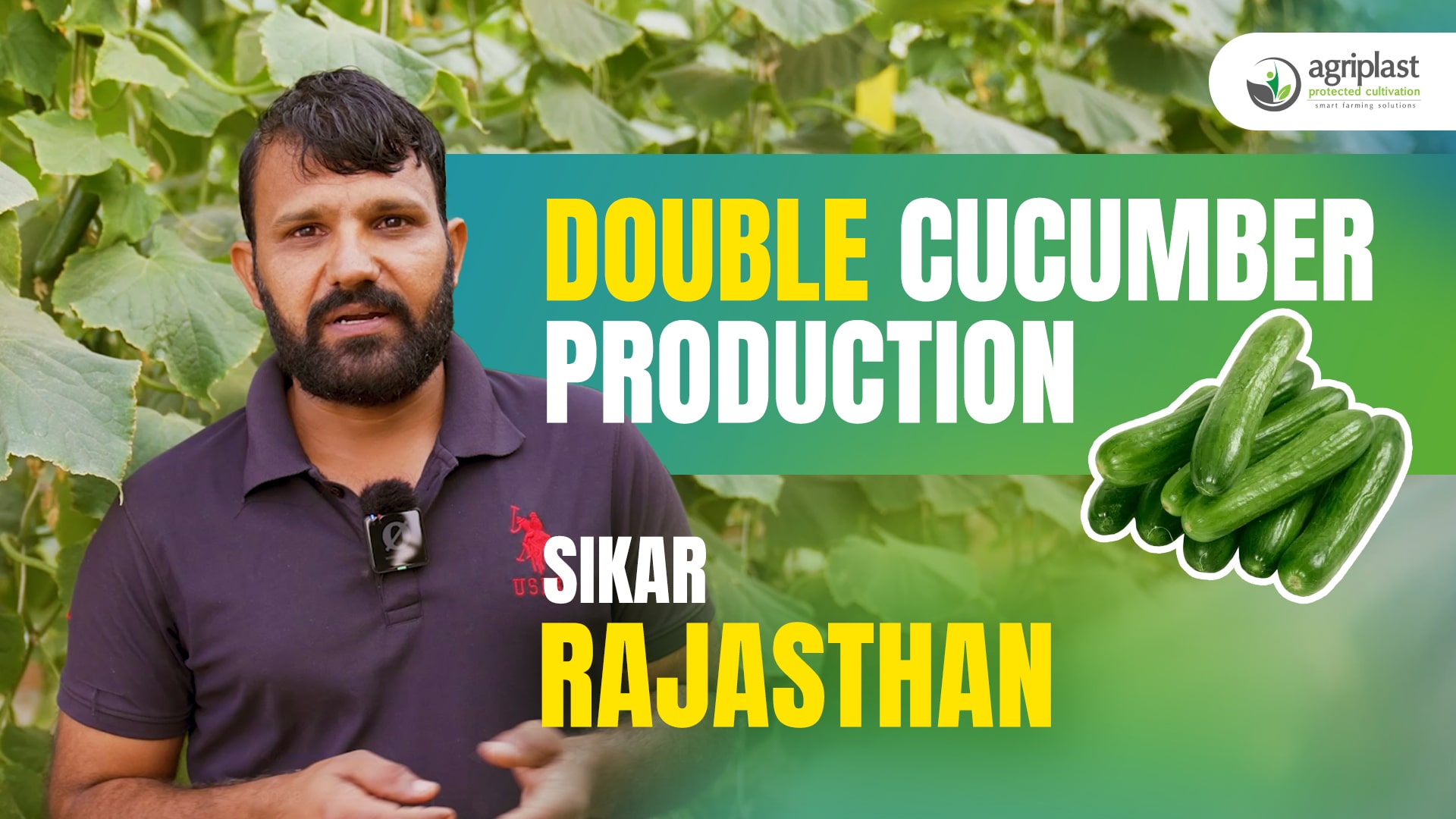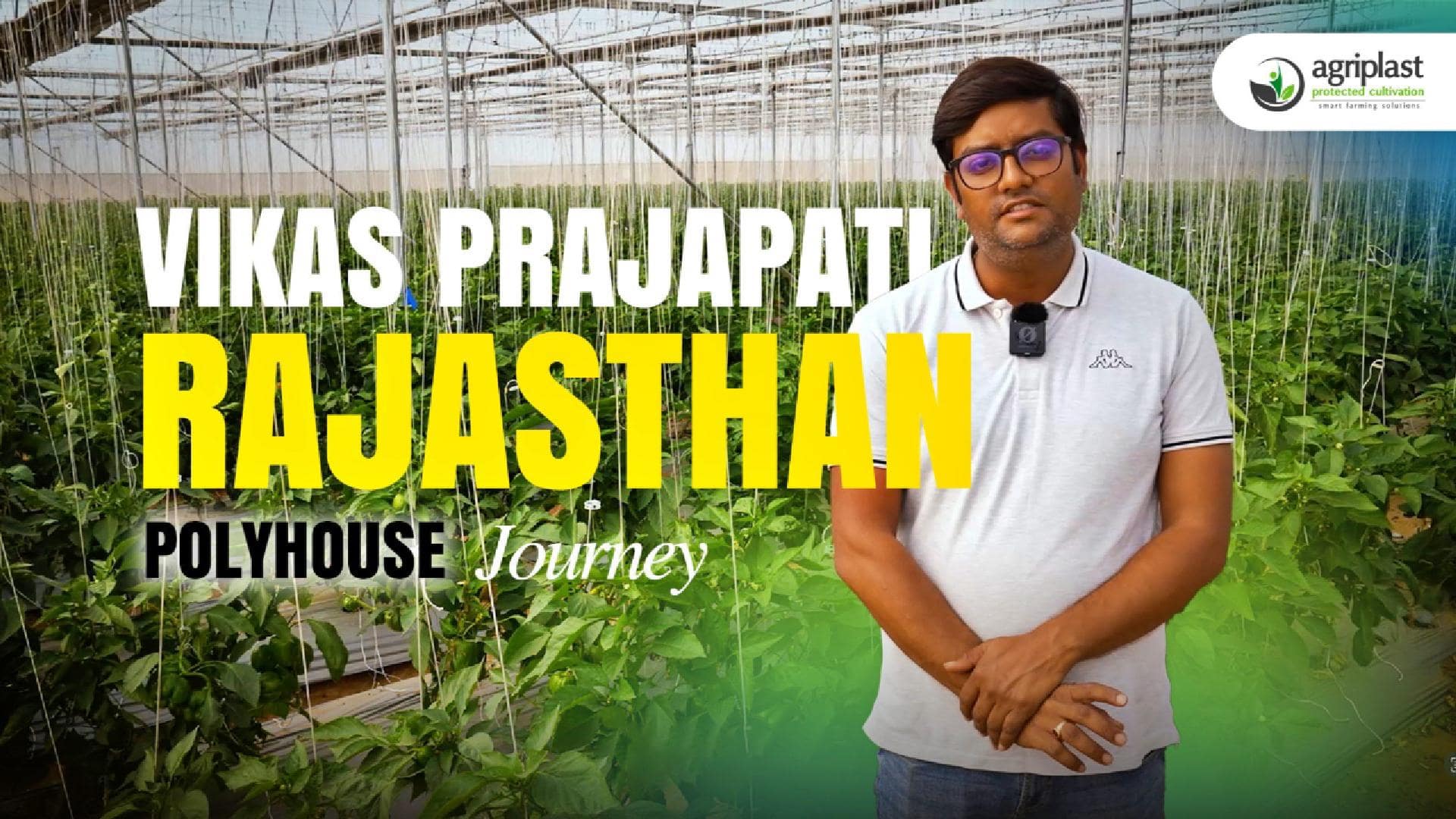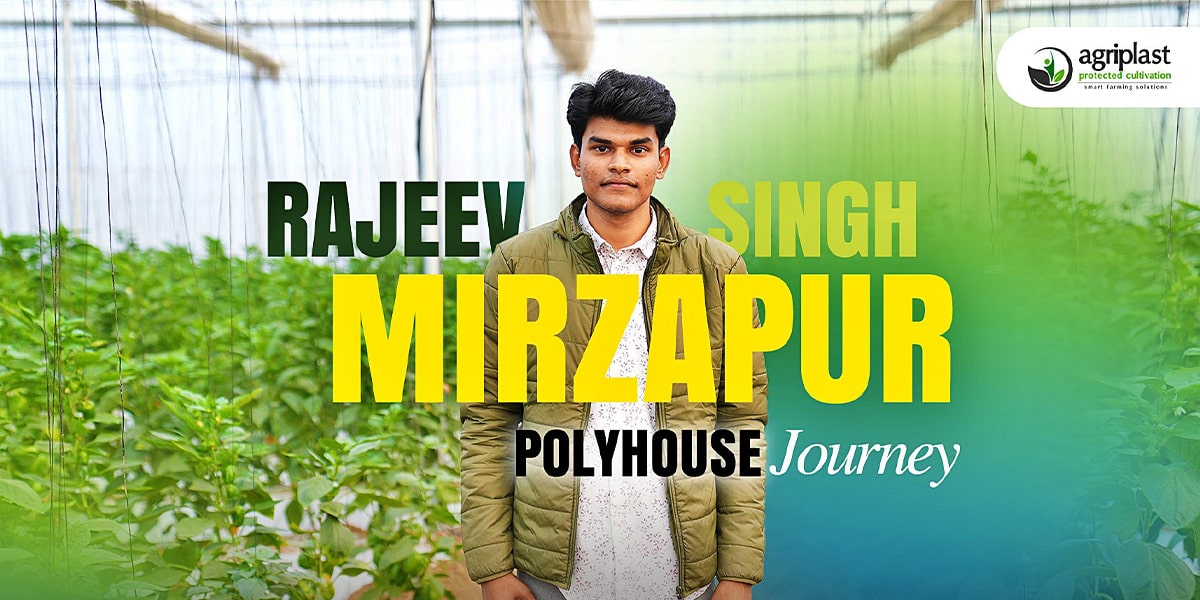Embracing Sustainable Agriculture Practices in Agriplast's Protected Cultivation Structures
The Growing Popularity of Polyhouse Farming in India
Polyhouse farming is a modern technique of agriculture where crops are grown in a controlled environment under a structure made of polyethylene or other materials. This method provides an opportunity for farmers to grow crops in a protected environment without being affected by weather conditions, pests, or diseases. In recent years, polyhouse farming has gained popularity in India, owing to its numerous benefits. This article will discuss why.

Polyhouse farming is a modern technique of agriculture where crops are grown in a controlled environment under a structure made of polyethylene or other materials. This method provides an opportunity for farmers to grow crops in a protected environment without being affected by weather conditions, pests, or diseases. In recent years, polyhouse farming has gained popularity in India, owing to its numerous benefits. This article will discuss why.
Advantages of Polyhouse Farming
Polyhouse farming offers several advantages over traditional farming methods. One of the most significant benefits is that it allows farmers to grow crops all year round. Polyhouses create a controlled environment where temperature, humidity, and light can be regulated. This means that farmers can grow crops even during the off-season, which can help them earn a higher income.
Polyhouses also provide protection against pests and diseases. Since the crops are grown in a controlled environment, the risk of pests and diseases is significantly reduced. This means that farmers can avoid using pesticides and other harmful chemicals, making this farming technique more environmentally friendly.
Another advantage of polyhouse farming is that it uses water more efficiently. Since the crops are grown in a controlled environment, water can be supplied directly to the roots, reducing wastage. This is particularly important in a country like India, where water is a scarce resource.
Polyhouse farming also allows farmers to grow crops that are not native to their region. This is because the controlled environment can be adjusted to create the ideal conditions for a particular crop. This means that farmers can diversify their crops and increase their income.
Polyhouse Farming and Climate Change
Climate change is one of the biggest challenges facing agriculture today. Rising temperatures, unpredictable rainfall, and extreme weather events are making it difficult for farmers to grow crops. Polyhouse farming can help mitigate the effects of climate change by providing a controlled environment where crops can be grown despite adverse weather conditions. This means that farmers can continue to earn a livelihood even in the face of climate change.
Polyhouse farming can also help reduce the carbon footprint of agriculture. Traditional farming methods require large amounts of water and energy, which contribute to greenhouse gas emissions. On the other hand, the polyhouse technique uses water more efficiently and can be powered by renewable energy sources such as solar power. This means that the latter is a more sustainable and environmentally friendly method of agriculture.
Government Support for Polyhouse Farming
The Indian government has recognized the potential of polyhouse farming and has taken several measures to promote it. According to the country's horticulture department, farmers who want to set up polyhouses can apply for subsidies. The government also provides training and technical assistance to farmers to help them adopt this modern method of agriculture.
The government has also established polyhouse farming clusters in several states, where farmers can learn from each other and share best practices. These clusters are supported by the government and provide a platform for farmers to access information, training, and support.
Conclusion
Polyhouse farming is a modern method of agriculture that offers several advantages over traditional farming methods. It provides a controlled environment where crops can be grown all year round, without being affected by weather conditions, pests, or diseases. It is also more environmentally friendly and can help mitigate the effects of climate change.
The Indian government has recognized the potential of polyhouse farming and has taken several measures to promote it. It is no surprise that this technique is becoming increasingly popular in India, and it is likely to play an important role in the future of agriculture in the country.
Get in touch with Agriplast Protected Cultivation, a well-known polyhouse manufacturer in India. Our experienced team of professionals will guide you through the process and provide you with workable solutions for your farming needs. Contact us now to learn more about how we can help you achieve continuous growth in your farming business.






















